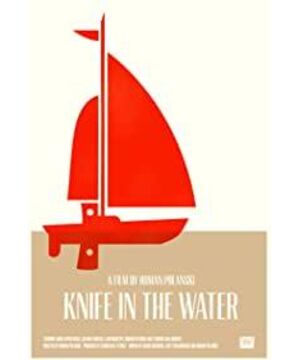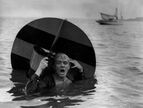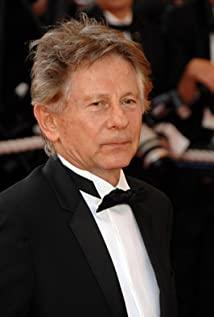The most crucial image is of course the title. It should be said that this is a very literary title. At a glance, you can see that there is a deep meaning hidden in it. The knife is a weapon used by men to conquer, representing the face and dignity of men. The water is soft and long, but it has the characteristics of women. As the lines in the film roughly say, a knife can cut through thorns in the forest, but it's useless on the water. Therefore, a knife that falls into the water is like a man entering a woman's pocket, and it becomes a useless fighting tool. The rope is a symbol of traction and bondage. It seems that both men are trapped in their own web of love, and they are always led by the woman by the nose. So the title becomes a metaphor for a love triangle between two men and one woman. No matter which side of the two men wins, the woman can reap the benefits.
It should be said that everyone has the desire to conquer. For men, there are two goals, one is to conquer the world, and the other is to conquer women. When two men try to conquer a woman at the same time, the knife in their hands becomes a symbol of mutual enmity. In the film, the two men show off and provoke each other from time to time, just to attract the woman's attention and prove to her that they are strong. For women, most of the time they wait and watch, sometimes balancing the strengths and weaknesses of the two, and do not deliberately favor either side. Such an ambiguous attitude was a bigger misunderstanding and stimulation for the two men, so their fight escalated step by step. In the end, the woman and the boy have a turbulent relationship, and then continue their middle-class life with her husband, and she is the only winner of the best of both worlds.
It is very interesting that the last dialogue, the woman confesses her betrayal to her husband, but the man doubts it. In fact, in his mind, there is also a dilemma. Because if the wife really betrays him, it will prove that the boy is not dead, and he will be able to escape the guilt, at least it will be a great consolation. So he hoped that the woman was joking on the one hand, and hoped that it was true on the other hand. This kind of contradiction shows that the middle-class men are strong on the outside and dry on the inside.
Because of the lack of excitement in the story and the rather vague themes of such films, the audience seems to be able to get their own interpretation from any angle. Or the director has his own unique starting point, but for me, it can only be regarded as a post-modern stream of consciousness work, let the author die, and think it is wishful thinking.
View more about Knife in the Water reviews







